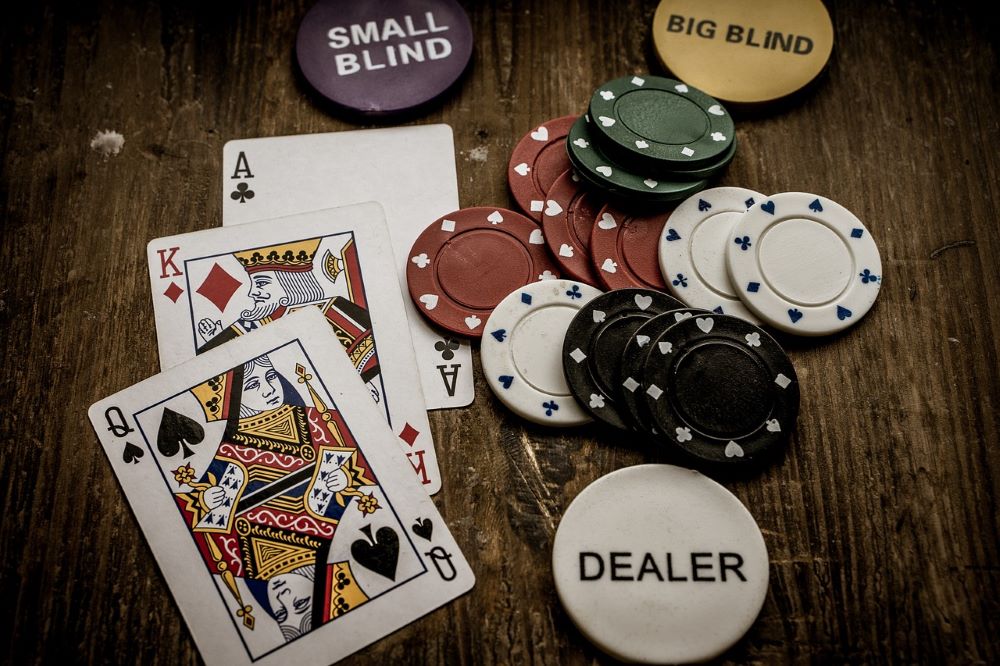

CHAMPIONS IN POKER AND CHESS, UNITED BY MATHEMATICS

CHAMPIONS IN POKER AND CHESS, UNITED BY MATHEMATICS
Attention chess and poker fans! Have you ever wondered how these two seemingly different games are related? It turns out there's a surprisingly fun connection between Texas Holdem poker and chess, especially when it comes to high-level chess players taking their skills to the poker table. Get ready for an exciting roller coaster of numbers, strategies, and laughs as we explore how chess brainiacs become cunning poker masters!
Texas Holdem Poker and Mathematics: A Party of Numbers!
Texas Holdem poker is a game of skill and strategy that requires a bit of math. But who said math can't be fun? Poker players dive into the thrilling world of probabilities and calculations to make decisions about whether to bet, fold, or even bluff. Here are some mathematical concepts in poker that will make you feel like a genius:
Probability: It's like guessing how many candies are in a jar, but with cards! Probability helps you calculate how likely it is that you'll win or lose a hand in poker.
Pot odds: Have you ever tried to decide if it's a good idea to buy a chocolate bar on sale? Pot odds are kind of like that, but for poker. They help you determine if a bet is worth it in the long run.
Expected value (EV): Imagine betting on a turtle race, but instead of turtles, they're cards! Expected value tells you how much money you can win or lose on a specific bet.
The Link Between Chess and Poker: They're Like Siblings Separated at Birth!
Although chess and poker may seem different, both games require similar skills. High-level chess players, like grandmasters, are experts at calculating moves and anticipating their opponents' actions. And it turns out those skills are also handy in poker.
Who would have thought! Here are some ways chess and poker are alike:
Risk calculation and analysis: In both games, you have to decide whether to take risks or play it safe. It's like crossing the street while playing "rock, paper, scissors" with a friend!
Strategy and adaptability: Chess and poker players need to be cunning and flexible, like a ninja with a calculator. You have to change your tactics depending on what your opponents do.
Psychology and reading opponents: In both chess and poker, you have to get inside your opponents' minds. It's like being a detective solving mysteries with numbers!
Several high-level chess players have shown they're also poker Texas Holdem geniuses. It's like they have mathematical superpowers! Here are some examples of these amazing chess and poker heroes:

Dan Harrington:
This chess master is also a poker world champion! Dan has won multiple World Series of Poker (WSOP) titles and has written books on poker strategies that everyone wants to read. Talk about a true genius!

Ylon Schwartz:
Another chess master turned poker ace. Ylon made it to the WSOP main event final table and has won over $3 million in live poker tournaments. Not bad at all!

Jennifer Shahade:
This chess grandmaster is also a poker champion. Jennifer has won two U.S. women's chess championships and has been successful in various live and online poker events. What a combination of talents!

Alexander Grischuk:
This Russian grandmaster is a force to be reckoned with in both chess and poker. Alexander has won over $1 million in online poker tournaments and has represented Russia in international chess competitions. Impressive!

Alexandra Botez:
is a popular chess player and streamer, Women's FIDE Master (WFM) and has stood out in the world of chess from an early age, winning numerous youth and national championships. In addition to her chess skills, Alexandra has gained fame as a streamer and content creator on platforms like Twitch and YouTube. Her charisma and skills have led Alexandra to become one of the most recognized figures in the online chess community.
Botez has ventured into the world of poker and has achieved success in the game. In 2023, she won the $550 Hyper Turbo Freezeout event at the PokerStars Caribbean Adventure, marking her first poker tournament victory and her second cash prize. Botez, who is a certified FIDE Master, has a strategic approach to the game, which has a history of synergy with chess. She has participated in high-stakes cash games and hosted a cash game for creators at the WPT World Championship. Her success in poker has been acknowledged by the poker community.

Poker and Chess are the Perfect Pair Chess and Texas Holdem poker are like two peas in a pod: though they may seem different, they actually have a lot in common.
High-level chess players prove that the skills they acquired on the chessboard can also take them to the top in the poker world.
So, the next time you're enjoying an exciting game of chess or poker, remember that both games offer the opportunity to develop useful and challenging skills that can be applied in various areas of life. And most importantly, both games are great fun! So, whether you're a chess master or a poker genius, keep enjoying these exciting games and having a blast!
Here are some basic mathematical probability tables in Texas Holdem Poker that may be helpful for players. It is important to remember that these figures are approximate and may vary slightly depending on the specific game situation.
Probabilities of getting certain starting hands (hole cards):
Hand | Probability (%) | Ratio |
Pair (AA-22) | 6.0 | 16.67 : 1 |
Same suit cards (suited) | 23.5 | 3.25 : 1 |
Consecutive cards of the same suit (suited connectors) | 2.11 | 46.4 : 1 |
High cards (AK-AJ, KQ) | 3.3 | 29.69 : 1 |
Same suit high cards (AKs-AJs, KQs) | 0.9 | 109.5 : 1 |
Chances of improving your hand on the flop:
Hand | Probability of improving on the flop (%) | Ratio |
Pair | 11.8 (make three of a kind) | 7.5 : 1 |
Two unpaired high cards | 32.4 (make pair) | 2.1 : 1 |
Consecutive cards of the same suit | 10.9 (make straight or flush) | 8.2 : 1 |
Probabilities of completing projects after the flop:
Project | Cards needed | Outs | Probability on turn (%) | Probability on river (%) | Probability on turn and river (%) |
Open flush | 2 | 8 | 17.0 | 17.4 | 31.5 |
Internal flush (gutshot) | 1 | 4 | 8.5 | 8.7 | 16.5 |
Color project | 1 | 9 | 19.1 | 19.6 | 35.0 |
Color project and pair | 3 (two pairs, trio, color) | 11 | 23.5 | 24.1 | 41.7 |
These tables only provide an overview of the probabilities in Texas Holdem Poker. The game is much more complex and requires analysis of various situations and factors to make informed decisions. As you gain experience in poker, you'll be able to adapt and use these probabilities better based on the specific circumstances of each hand.
You may also like

Fold in poker: what is the difference with check and what does it imply in a round?
Do you need to clarify poker concepts? If you have been playing this card game for a while, you will have discovered a lot of terms that may overwhelm you at first. Beyond making an all-in, bluffin...

A bot that warns you about overlay poker is invented
Technology never ceases to surprise us. And it never ceases to give us joy. We bring you a surprising news that will interest both those of you who organize poker tournaments and the fans of this g...

Interview with Partypoker team pro Ludovic Geilich
Interview to Ludovic Geilich, Partypoker team pro member The interview of today at PokerStars European Poker Tour is for Scottish poker player Ludovic Geilich, 4th in the Scotland All time Money L...













